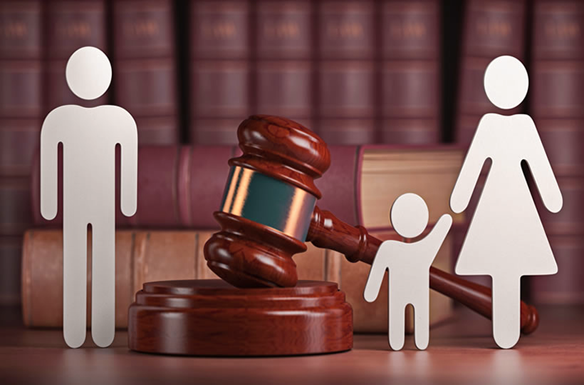Wills & Estate Planning
Nobody wants to even think about the possibility of dying young, especially those with children. But what will happen to your kids if it happens? During life, everyone should make it clear by properly executing estate planning documents who should benefit upon their passing. Without proper planning with an Elder Law or Estate Planning attorney, assets may go to those named in an outdated Will or even default to descendants or heirs under Florida Statute. This could lead to people inheriting despite the person who passed not wanting that to happen. Without proper planning, those loved ones can suffer, especially those who would have inherited had the person who passed away planned better.

“Amanda is one of the kindest human beings I’ve ever interacted with. Her services are so personalized and truly take the stress out of the process.”
Jon B.
Nobody wants to even think about the possibility of dying young, especially those with children. But what will happen to your kids if it happens? During life, everyone should make it clear by properly executing estate planning documents who should benefit upon their passing. Without proper planning with an Elder Law or Estate Planning attorney, assets may go to those named in an outdated Will or even default to descendants or heirs under Florida Statute. This could lead to people inheriting despite the person who passed not wanting that to happen. Without proper planning, those loved ones can suffer, especially those who would have inherited had the person who passed away planned better.
Estate planning is for everyone; not only reserved for the rich. Everyone should consider estate planning to avoid the potentially devastating consequences for their heirs in the long-run. Learn more here.
Estate planning has many benefits. You can use it to minimize the taxes on your assets. It can also make the property transition process seamless. You can also use it to name a guardian for your minor children.
Benefits of Estate Planning
Planning benefits the Principal and their family members or loved ones in a myriad of ways. Some of the most prominent advantages associated with estate planning include ensuring property passes according to the wishes of the person who passed, minimizing taxes, nominating guardians, and avoiding probate.
Wills
An appropriately drafted will eliminates uncertainties and complies with the Florida Statute. It consists of information of heirs, and their respective shares in the estate. You may even appoint a guardian for the minors through a Will, choose an executor, and name someone to manage the property.
Wills cannot be used for the following:
- Stocks that are held in transfer-on-death form
- IRA accounts and pension funds that are named under specific beneficiaries
- All those assets that are held in joint tenancy
- Bank accounts with payable-on-death beneficiaries
- Life insurance proceeds with a named beneficiary
Tax Saving
The core objective behind drafting an estate plan lies in protecting loved ones from unwanted consequences and undesirable situations. Another critical part of estate lies in minimizing taxes, which ultimately saves your hard-earned money from going to the government in the form of state inheritance taxes.
When you leave assets over a certain threshold, the state is likely to charge a substantial amount of inheritance tax. Consulting an estate planning attorney can help you reduce the inheritance tax liability.
Trusts
Suppose you want to design a plan during your lifetime, leaving something of value for your children or grandchildren but not handing those funds outright to your beneficiaries. Thus, instead of giving them the gifts or assets immediately, you might draft a trust. There are many types of trusts; you may discuss them with a qualified estate planning or trust attorney to choose the one that serves your interest the best.
In some cases, drafting a trust turns out to be a better option than drafting a Will. However, consulting a professional estate planning attorney is indispensable when choosing the option that favors you the best.
Estate Planning Summarized,
If you want your assets and loved ones to be protected in the long run, drafting an estate is inevitable.
It is recommended to consult professional estate planning attorneys to formulate a plan to protect your estate from falling into the wrong hands and to reduce taxes.
FREE LEGAL CONSULTATION
Call Now for a Free Legal Consultation
Getting started is easy. Give us a call or request an evaluation by clicking the button below, and we will setup a convenient time to meet with you and discuss your situation.














